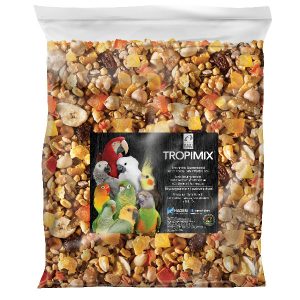Last Updated on by Mitch Rezman
BIOGRAPHY OF MARK HAGEN
Mark Hagen is the Research Director at The Hagen Avicultural Research Institute (HARI). He has a Master of Agriculture from the University of Guelph and specialized in Psittacine Aviculture.
In his Bachelor of Science, Mark concentrated on nutrition and zoology and attended a semester at the University of California, Davis taking courses in cage bird medicine, nutrition and avian science. It has been more than ten years that he has been studying companion birds; writing his first paper on parrot breeding in 1983 and establishing HARI in 1985.
Following five years of experience housing birds indoors in a converted warehouse, Mark designed the new HARI facility in Rigaud, Quebec in 1989. This facility incorporates the latest techniques in environment control.
Presently his research includes nutrition, and the influence of temperature, humidity, and light cycles on breeding. Mark also speaks French and German and is making connections with European aviculturists in order to trade captive-bred birds for a wider gene pool.
Conservation is one of his most important concerns. He gives talks to school children on the importance of rainforests and has bought over 100 acres of rainforest through the World Wildlife Fund of Canada.
One of his highlights with parrots was to go on an Earthwatch expedition to Amazonia in southeastern Columbia and see several species of parrots including nesting Scarlet Macaws and an undescribed species of Toucan.
The humane care of animals has always been important to Mark and for that reason, he was against the mass importation of parrots for the pet trade but does see a role for limited trade in properly handled sustainable harvests of common birds. He can not understand how countries such as Australia would allow their farmers to kill thousands of Cockatoos rather than let Aviculturists around the world have access to them.
Mark attended the 1987, 1989, and 1994 Convention on International Trade in Endangered Species (CITES) meetings in Ottawa, Canada, Lausanne, Switzerland and recently in Fort Lauderdale, USA. CITES is trying to ensure that sustainable levels of trade in wild-caught parrots are achieved.
This should give an incentive to Tropical Countries to preserve the habitat that supports this natural resource. A firm believer in this philosophy, Mark would like to assist these countries in captive breeding their own species of tropical birds.
Mark is a firm believer in sharing his experiences and knowledge. He has published dozens of papers relating to the work at HARI i.e. egg incubation, oil and nutrition, formulated diets, husbandry and sanitation disease control, cage design, ventilation, pediatric care… Several of these have been presented at many of the avicultural conferences held every year throughout the USA and Canada.
The science of breeding pet birds in captivity is still very young. The costs associated with the development of diagnostic tests and vaccines for various exotic diseases at Universities is not being fulfilled.
Understanding the importance of this type of research has lead Mark to contribute at least five thousand dollars worth of products and gifts to three major fundraising events every year for the past two years. Mark is an auctioneer and assists with the auctions at the Mid-West Avian Research Expo, International Avicultural Society, American Federation of Aviculture, and the Canadian Parrot Symposium.
Author Profile
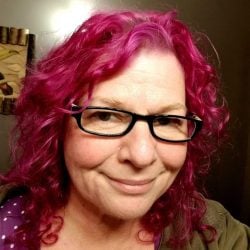
Latest entries
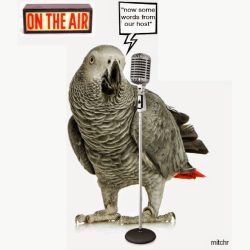 Bird & Parrot CareJune 20, 2025Understanding the Best Way to Use Prevue Pets Mimic Me Voice Trainer
Bird & Parrot CareJune 20, 2025Understanding the Best Way to Use Prevue Pets Mimic Me Voice Trainer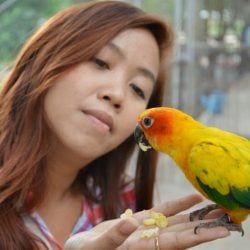 Bird BehaviorJune 6, 2025How Do I Keep My Parrot From Dumping His Food Every Day?
Bird BehaviorJune 6, 2025How Do I Keep My Parrot From Dumping His Food Every Day?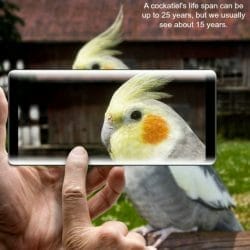 Birds & LightingMay 16, 2025I Am Seeking Clarity About Lighting for My Birds Cage
Birds & LightingMay 16, 2025I Am Seeking Clarity About Lighting for My Birds Cage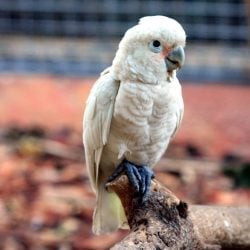 Bird RescueApril 29, 2025How Do We Re-Home a 17 yr Goffin Cockatoo?
Bird RescueApril 29, 2025How Do We Re-Home a 17 yr Goffin Cockatoo?



